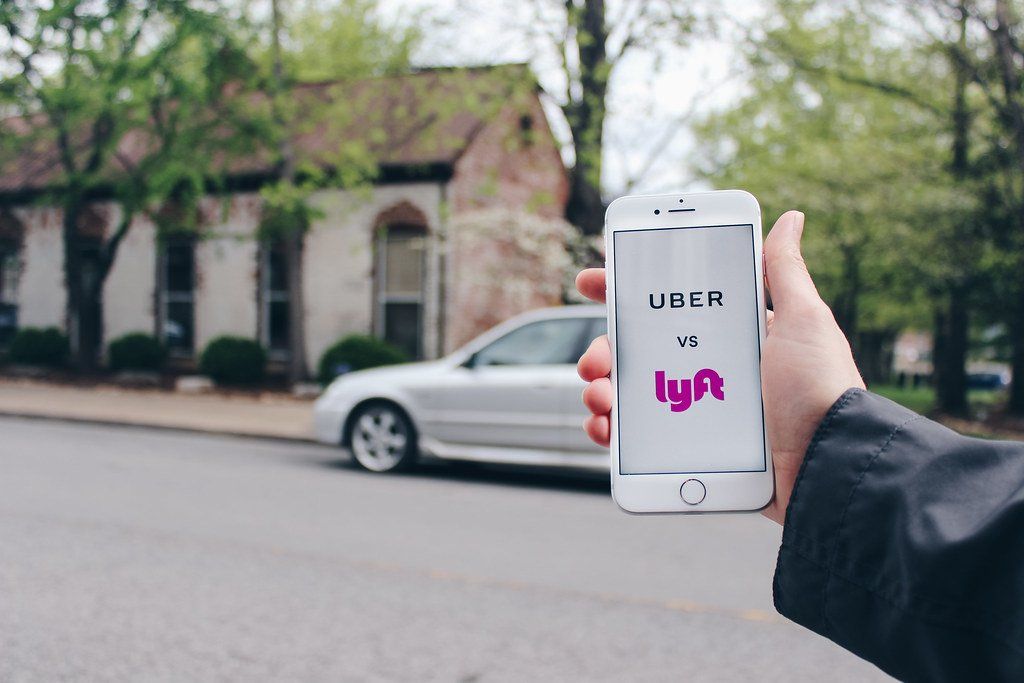Liability in Rideshare Accidents
The days of hailing a taxi are all but gone. Now, more and more people are making use of a rideshare, also known as peer-to-peer transportation, in order to get around.
Ridesharing companies are driver-for-hire services where one individual uses their own vehicle and an app to connect with other individuals who are looking for a ride.
They’re a great option for people who cannot drive or for those who want to go out on the town without having to worry about assigning a designated driver. No matter why they need a ride, all the user has to do is go on the app, put in their location, and a driver will arrive within minutes to pick them up and take them to their destination.
It is absolutely a convenient way to get around, but as ridesharing becomes more popular, it presents some unique challenges when it comes to traffic accidents and determining liability. Since this particular scenario can be a rather tricky one, especially when it comes to personal injury claims, it’s best to familiarize yourself with how ridesharing liability in North Carolina works.
What Should I Do if I’m in a Ridesharing Accident?
Any kind of accident can be overwhelming. In this situation, it’s best to try to remain calm and take the following steps:
- Get yourself to safety. Make sure you are out of the way of oncoming traffic and in a safe place where you can wait for emergency services to arrive.
- Call 911. If someone hasn’t contacted the police already, make sure you do so ASAP so that the accident can be properly recorded and an ambulance and fire trucks can be dispatched if needed.
- Gather as much information as you can. Get a copy of the police report, as well as the names, contact information, and insurance details for anyone else involved, including the rideshare driver, drivers of other vehicles, and any other passengers who were involved.
- Take pictures. Get as many pictures of the scene as you can, including any vehicle damages, injuries, traffic signals/signs, weather conditions, road conditions, road debris, etc.
- Get in touch with your lawyer. In this situation, you need to speak to an attorney ASAP to make sure your rights are protected. Additionally, make sure you do not give any statements to insurance companies before you consult with your attorney.
Who is Responsible for Ridesharing Car Accidents?
North Carolina is an at-fault state, meaning that whoever is responsible for causing the accident is the driver who can be held liable. Whether you’re in your own vehicle or riding as a passenger of a ridesharing vehicle, if the rideshare driver causes the accident, they will generally be deemed at-fault.
Just like regular car accidents in North Carolina, liability will be assigned on the basis of proving negligence. To prove that a driver was negligent, the following must be true:
- The driver owed a duty of reasonable care (i.e. they should have been driving responsibly) AND;
- The driver breached the duty of reasonable care (i.e. they did not drive responsibly) AND;
- You were injured and/or suffered damages as a result of this breach of reasonable care.
Do Rideshare Drivers Have to Carry Insurance in North Carolina?
In a regular car accident, a driver’s personal insurance would cover the damages resulting from an accident. However, most insurance companies do not cover drivers who are using their vehicles for business purposes, and that includes ridesharing.
Fortunately, the two main ridesharing companies, Uber and Lyft, both offer some insurance coverage to their drivers. Unfortunately, the amount of coverage offered depends on which stage of the ride the driver is in. These stages are broken down into “periods” and the coverage for each is as follows:
- Period 0: If the driver is not logged into the rideshare app, no coverage is provided.
- Period 1: If the rideshare driver is logged into the app, but hasn’t accepted a ride, both Uber and Lyft offer $50,000 liability coverage for each person injured in an accident caused by the driver and $100,000 total liability coverage per accident.
- Period 2: If the driver has accepted a trip, but is still on the way to the passenger’s location, Uber and Lyft both offer liability coverage of $1 million.
- Period 3: If the rideshare driver has a passenger in the car, both companies offer liability coverage of up to $1 million, as well as limited coverage for damages done to the driver’s car and uninsured driver insurance.
Can I Hold Uber or Lyft Responsible if I am Injured in a Ridesharing Accident?
Individuals who drive for ridesharing companies are considered independent contractors, meaning that they are not employees of Uber or Lyft. Because of this, suing either of these companies can be difficult, if not impossible.
That said, the liability coverage these companies offer their drivers may cover your injuries if you were hurt while in a ridesharing vehicle on a ride. If you were driving your own vehicle, or were the passenger of another vehicle, receiving compensation for your injuries caused by a rideshare driver might be more difficult.
If you were injured in a ridesharing accident, hiring a personal injury attorney will help you get through the difficult claims process and give you the best chance of being reimbursed for your injuries. For your free consultation, give the lawyers at Mulligan Attorneys a call at 910-763-1100 or click here to schedule a free consultation.




